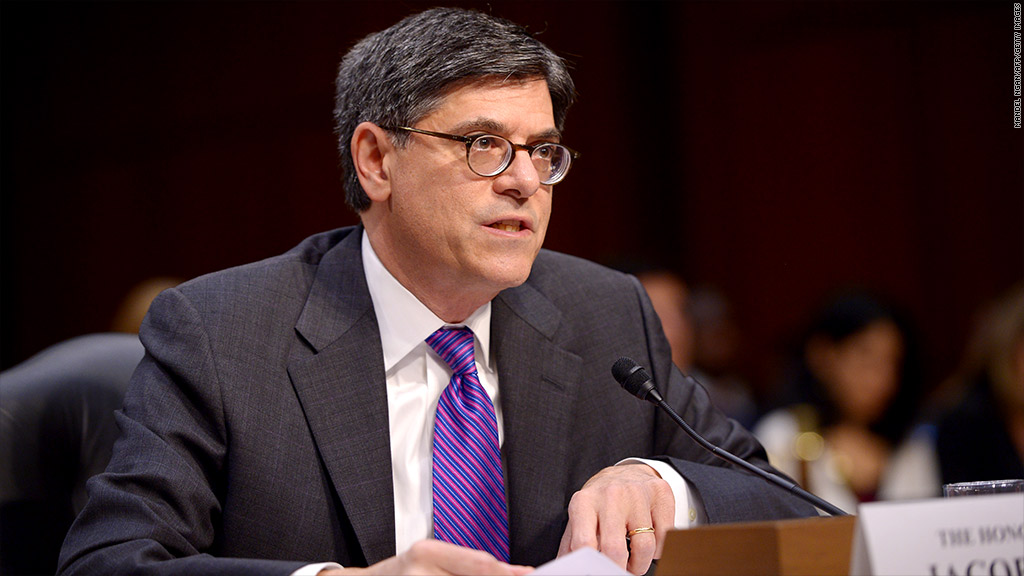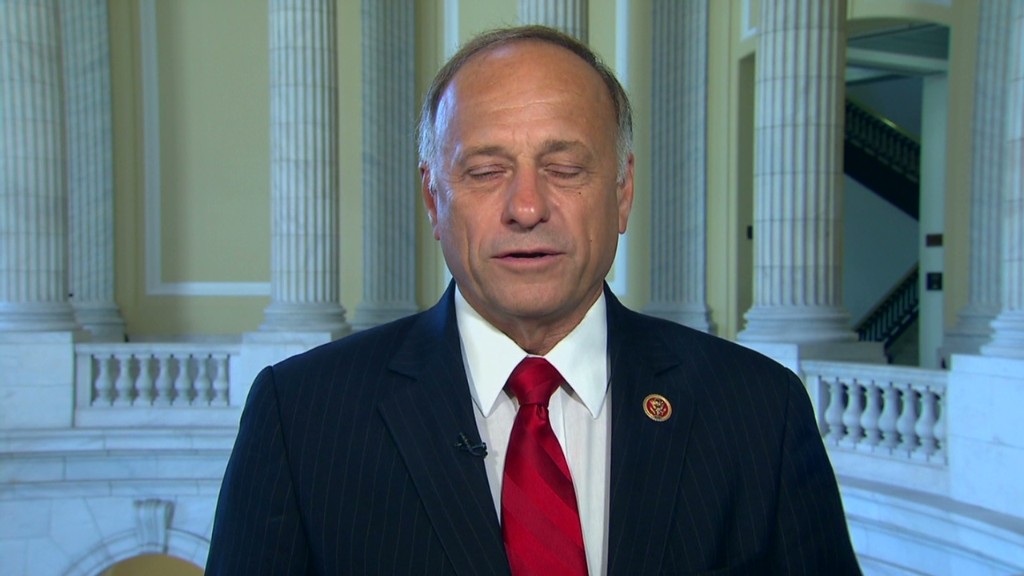
Treasury Secretary Jack Lew warned Thursday that timely payments to Social Security beneficiaries, veterans, active duty military personnel and Medicare providers would be at risk if Congress does not raise the debt ceiling.
In testimony before the Senate Finance Committee, Lew said the hit to the economy would go far beyond the disruption of financial markets that has gotten a lot of attention in recent days.
"Between October 17 and November 1, we have large payments to Medicare providers, Social Security beneficiaries and veterans, as well as salaries for active duty members of the military," he said in prepared remarks. "A failure to raise the debt limit could put timely payment of all of these at risk."
The statement was one of his most explicit warnings of the problems posed to the public if the debt ceiling isn't raised.
Related: CNN - GOP will propose short-term debt ceiling extension
There are 1.4 active duty members of the military and nearly 800,000 civilian support staff in the Defense Department who are working during the government shutdown.
Lew disputed the claims of some Republicans that there wouldn't be a major problem if the ceiling is not raised soon, and that the Treasury Department can pick and chose which bills to pay to avoid default on U.S. debt and limit the damage to the public.
"The United States should not be put in a position of making such perilous choices for our economy and our citizens," he said. "How can the United States choose whether to send Social Security checks to seniors or pay benefits to our veterans? How can the United States choose whether to provide children with food assistance or meet our obligations to Medicare providers."
Related: Debt deal hopes push stocks higher
Sen Orrin Hatch, the ranking Republican on the committee, repeated his party's criticisms of the administration's refusal to negotiate on the debt ceiling.
"If the Obama administration won't negotiate on entitlements in the context of the debt ceiling, when will it negotiate?" he said in his opening remarks.

And other Republican lawmakers said the public is behind their demand that spending be cut before the debt ceiling is increased.
"I think this is 11th time I've been through this discussion about the sky is falling and the earth will erupt," said Mike Enzi, a Republican from Wyoming. "Wyoming families aren't buying these arguments. They're saying you can't spend more than you take in."
Lew repeated the administration's position that the ceiling has to be raised to cover the spending that Congress has previously approved.
"Those Wyoming families know that after they run up their credit cards, they don't get to ignore it," he said. "They have to pay their bills. The debt limit is just paying our bill."
Debt ceiling deadline: Stop fixating on Oct. 17
Lew reiterated that by Oct. 17 he will exhaust the special accounting measures he's been taking since May to keep under the debt cap. After that point, without the ability to borrow, the government will run out of the cash it needs to pay all its bills on time. But he cautioned that Oct. 17 is only the best possible estimate.
"It is impossible to predict with accuracy," he said. "That's why Congress needs to act to raise the debt limit sooner rather than later."
Sen Pat Toomey, a Republican from Pennsylvania who has pushed legislation to mandate that interest on Treasuries be paid before other bills, asked Lew to guarantee that the government does not default on debt.
Toomey said it was "shocking" that Lew couldn't give him that assurance.
Lew said any missed payments -- not just those on the debt -- would constitute default and rattle the economy and financial markets.
Economists surveyed by CNNMoney also warned that a recession is very likely if the ceiling is not raised.


